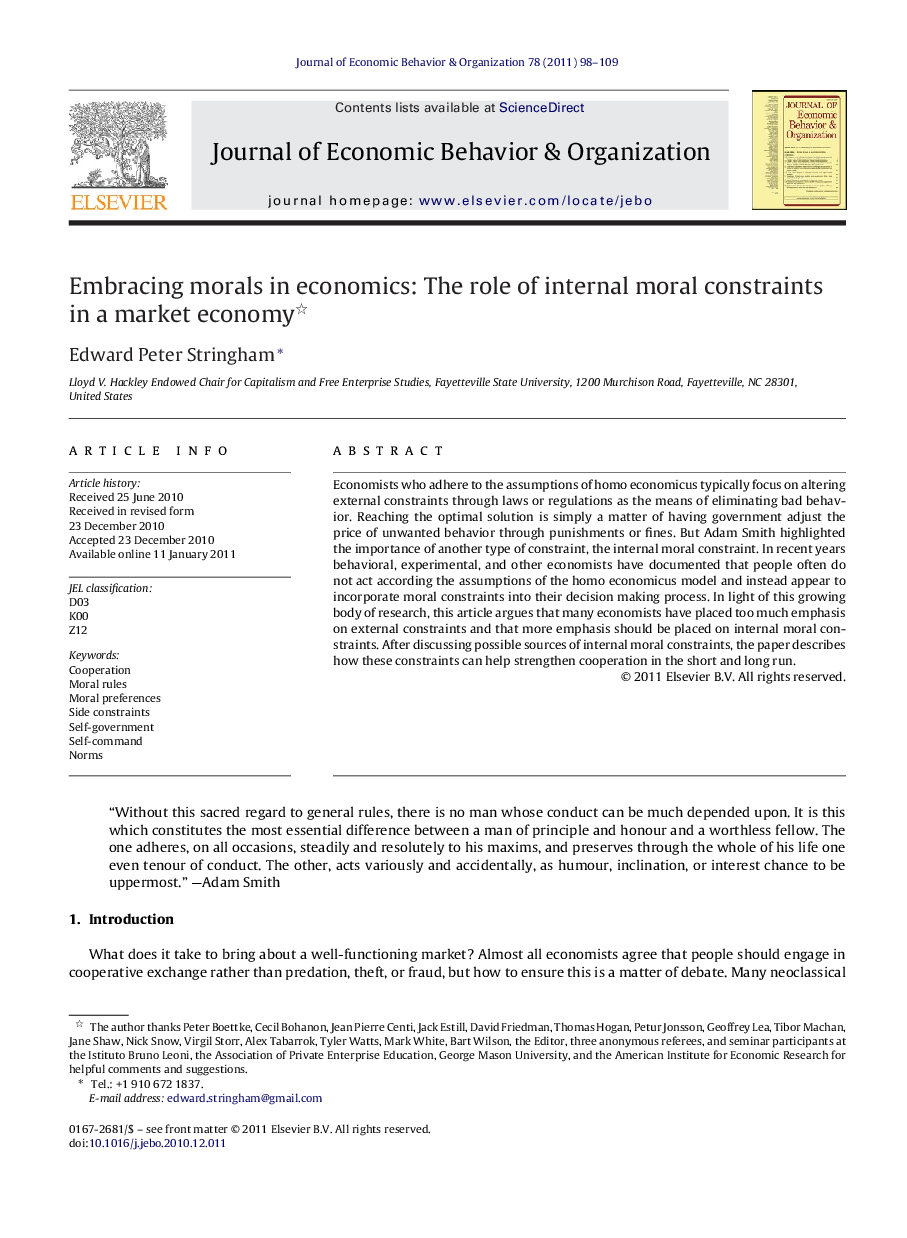| Article ID | Journal | Published Year | Pages | File Type |
|---|---|---|---|---|
| 884105 | Journal of Economic Behavior & Organization | 2011 | 12 Pages |
Economists who adhere to the assumptions of homo economicus typically focus on altering external constraints through laws or regulations as the means of eliminating bad behavior. Reaching the optimal solution is simply a matter of having government adjust the price of unwanted behavior through punishments or fines. But Adam Smith highlighted the importance of another type of constraint, the internal moral constraint. In recent years behavioral, experimental, and other economists have documented that people often do not act according the assumptions of the homo economicus model and instead appear to incorporate moral constraints into their decision making process. In light of this growing body of research, this article argues that many economists have placed too much emphasis on external constraints and that more emphasis should be placed on internal moral constraints. After discussing possible sources of internal moral constraints, the paper describes how these constraints can help strengthen cooperation in the short and long run.
Research highlights▶ Discusses limits of external constraints and why inducing cooperation from amoral egoists is easier said than done. ▶ Reviews evidence that internal constraints exist and are important. ▶ Discusses potential sources of internal constraints and ways they can be used to elicit cooperation.
